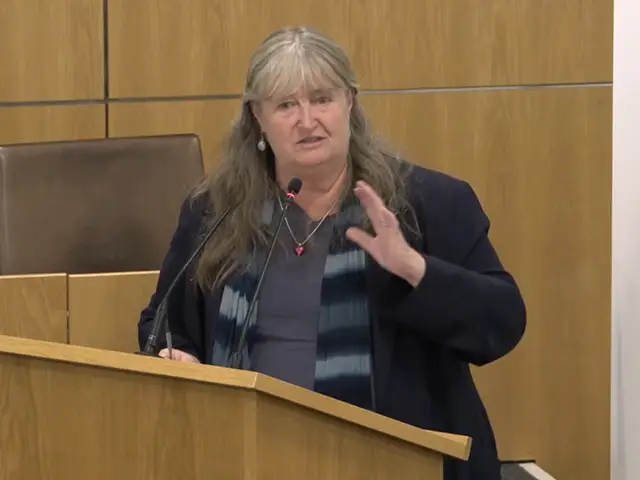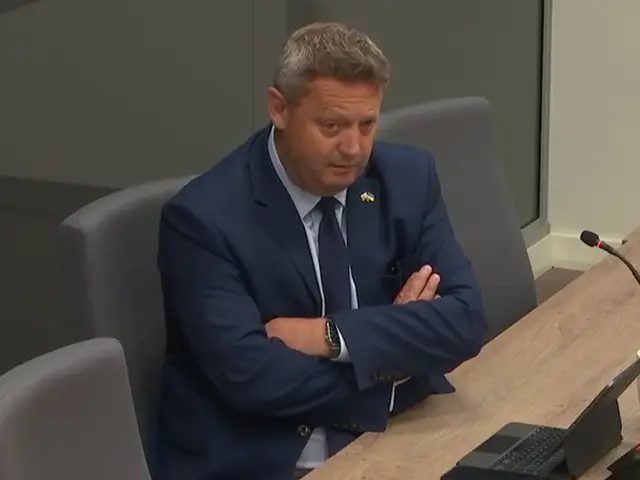Support quality, independent, local journalism…that matters
From just £1 a month you can help fund our work – and use our website without adverts. Become a member today

Former Senedd Members should be permanently banned from judging the conduct of old colleagues, Wales’ top lawyer has suggested – contradicting plans in a new recall bill.
The recall bill includes a two-year cooling-off period before former Senedd politicians can become “lay” members of a committee which recommends sanctions for misbehaviour.
But Julie James, who is counsel general, the Welsh Government’s chief legal adviser, argued the disqualification should be for life to overcome public cynicism.
She made the comments on Monday November 17 while giving evidence on plans to introduce a system of recall, which would allow voters to remove politicians between elections.
Under the bill, for the first time, lay members would be appointed to the Senedd’s standards of conduct committee but – unlike in other parliaments – this could include former members.
Douglas Bain, the standards commissioner who investigates complaints about Senedd Members, has warned two years is too short and called for a four-year ban.
‘Personal view’
But Ms James went further, telling the legislation committee former Senedd politicians should not be able to sit as lay members in judgement of their old colleagues at all.
She told Senedd Members: “For what it’s worth, as a personal thing, not speaking as the counsel general, I think it should be a permanent disqualification.
“I think you would be permanently thought of as being in whatever camp you’d been in when you were elected – and that’s just a personal view, it’s not a government view.
“But, I can see, if you’re trying to overcome cynicism and so on, the idea that that person is now non-aligned and independent is difficult.”
Asked about the rationale for including the proposed two-year cooling-off period in the bill, the former solicitor told Senedd Members: “I mean it’s a place to start if I’m honest.”
‘Conflict of interest’
She said the two-year prohibition aligns with the qualification requirements for the standards commissioner as well as rules on ministers taking jobs after politics.
Adam Price, the former Plaid Cymru leader, warned: “The degree of perceived conflict of interest here is possibly even greater because you’re being appointed not just to any external organisation but to the sub-committee of an institution you were a member of.”

Ms James concluded: “If you’ve been an elected member of the Senedd, you shouldn’t be allowed to be a lay member of one of its committees because, frankly, I don’t think you’d ever be regarded as ‘lay’ by anyone.”
She stressed ministers are walking a fine constitutional line – seeking to establish a legal framework without dictating internal rules to the Senedd – and she suggested the Welsh Government was open to amendments.
She said: “We felt very strongly that we shouldn’t start from the point of view of the government telling the [Senedd] commission how to conduct its business.”
‘Extraordinarily unsatisfactory’

Alun Davies, a Labour member of the legislation committee, raised concerns about plans to create election-related offences, including around false or misleading statements of fact.
Mr Davies warned the can was being kicked down the road, saying: “We’re being asked here to put on the statute book a duty to create an offence which itself isn’t defined.
He added: “But that feels like an extraordinarily unsatisfactory way of making law… It does not feel like we’re creating a serious piece of law here.”
Ms James told her colleague: “It’s for the next government and the parliamentary authorities to define that offence, yes.”
Mr Davies said: “You’re going to wish your successors well with this, I trust,” drawing a laugh from the counsel general.
‘Hyper-cautious’
Senedd Members heard an existing criminal offence on false statements during elections would be widened beyond a narrow focus on the character or conduct of another candidate.
But Ms James highlighted the need to “insulate” a bill “right on the edge” of devolved powers, saying: “We need to make sure we don’t push it so far that the whole thing fails.”
She warned the final vote on the bill would fall on the last government sitting day of term, with royal assent before dissolution on April 8 but after the Senedd rises at Easter.
She said the tight timetable means the bill would instantly fail if the UK Government was to refer the question of whether it is within the Senedd’s powers to the Supreme Court.
The counsel general told the committee: “We’re very keen that that doesn’t happen so we are perhaps being hyper-cautious about it.”
Support quality, independent, local journalism…that matters
From just £1 a month you can help fund our work – and use our website without adverts.
Become a member today
